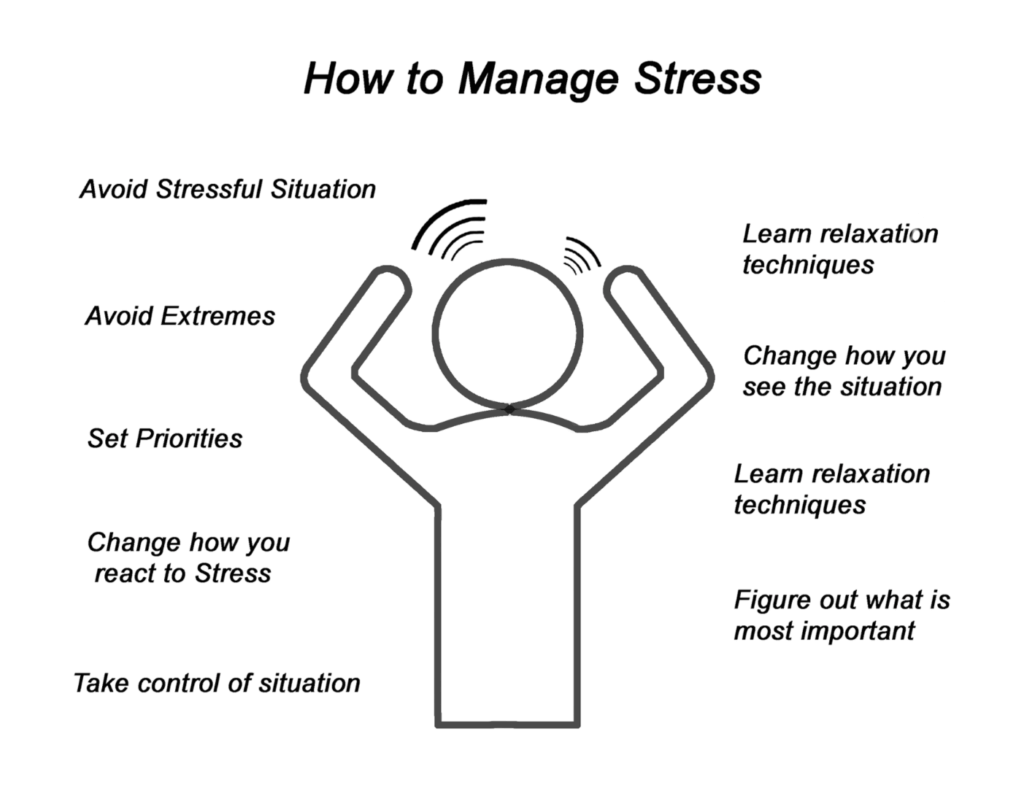For over a decade, research has been painting the picture that lack of sleep quantity and quality can lead to weight gain and obesity.
And while across statistic and research reviews, this seems to be the case, there’s also an argument that can be made regarding the opposite problem:
Weight loss and being underweight due to the lack of sleep.
Genetic Differences
The theory of the body fat setpoint suggests that each of us has a genetic predisposition to a certain level of fatness where we feel good, don’t obsess over food (but still have a healthy appetite), have plenty of energy, and our metabolism is healthy.
If we go too much over or under that set point (which is more of a range, rather than an exact body fat percentage), the body kicks various mechanisms into action to get us back to our sweet spot.
For some folks, the range is lower, meaning they can walk around with full-on abs all year-long. Others aren’t so lucky and must make do with a bit more fat on their frame.
But what if sleep hinders these mechanisms? We understand that sleep debt can lead to obesity, so it would also make sense that it could lead to the opposite effect in naturally lean people.

Optimizing sleep is crucial for maintaining a healthy weight and supporting muscle gain. Sleep plays a significant role in various physiological processes, including hormonal regulation, metabolism, and recovery.
Sleep and Muscle Gain
Lack of sleep appears to be one of the biggest roadblocks for people who want to gain strength and muscle mass.
Insufficient sleep leads to poor muscle recovery, slower muscle growth, and, in some cases, even muscle loss.
And seeing as muscle growth is a big factor for healthy weight gain, we must optimize our sleep.
Not only is this a sure way of improving muscle growth and recovery, but it possibly also has a regulatory effect on our metabolism and appetite, which would result in healthy and effortless weight and muscle gain.
Here’s how improving your sleep can contribute to a healthy weight and muscle gain:

Restoration of Energy
Adequate sleep restores your energy levels and supports overall metabolism. When you’re well-rested, you have more energy for workouts and physical activities, which can aid in muscle gain and weight management.
Muscle Protein Synthesis
During deep sleep, the body engages in muscle protein synthesis, which is essential for muscle repair and growth. Insufficient sleep can reduce the rate at which your muscles recover and can limit the gains you make from exercise.
Better Decision-Making
Poor sleep can lead to impaired judgment and decision-making, potentially affecting your food choices. Sleep-deprived individuals are more likely to opt for unhealthy, high-calorie foods.
Growth Hormone Release
One of the key hormones for muscle growth and repair is growth hormone (GH). The majority of GH release occurs during deep sleep, particularly during the first few hours of the night. Ensuring adequate sleep duration and quality can maximize GH secretion, promoting muscle recovery and growth.
Leptin and Ghrelin Balance
Sleep deprivation disrupts the balance of appetite-regulating hormones, leptin, and ghrelin. Lack of sleep increases ghrelin (the hunger hormone) and decreases leptin (the hormone that signals fullness), leading to increased appetite and potential overeating, which can contribute to weight gain.
Insulin Sensitivity
Poor sleep can lead to insulin resistance, which impairs the body’s ability to regulate blood sugar levels. This can promote fat storage and hinder muscle development. Quality sleep helps maintain healthy insulin sensitivity.
Stress Hormones
Lack of sleep can increase stress hormone levels, such as cortisol. Elevated cortisol levels can promote fat storage, particularly in the abdominal area, and hinder muscle growth.
8 Ways To optimize sleep for healthy weight management and muscle gain:
1. Aim for seven to nine hours of quality sleep every night.
Aiming for 7 to 9 hours of sleep per night is based on recommendations from sleep experts and scientific research, and it reflects the optimal sleep duration for most adults.

2. Avoid distractions
Having insufficient sleep is something that has become more common over the last decades.
Devices such as smartphones and laptops can be sources of distractions and a disruption to sleeping patterns.
3. Create a comfortable sleep environment.
Aside from sleep quantity other sleep characteristics should be considered such as sleep quality. It is important invest in a comfortable mattress and pillows
Poor quality mattresses are linked to back pain, poor sleep quality and an increase in stress. Depending on the type of bedding one particular study found that back pain was reduced by approximately 48% and sleep quality was improved by 55%.
4. Maintain a Consistent Sleep Schedule
Go to bed and wake up at the same time every day, even on weekends. This helps regulate your body’s internal clock.
5. Limit caffeine and alcohol intake, especially close to bedtime.
If you consume caffeine, try to limit it to the morning hours and avoid it in the afternoon and evening.
6. Ensure your bedroom is cool, dark and quiet.
By making your room quiet and dark, you help create an environment that promotes relaxation, supports your natural sleep-wake cycle, and encourages the uninterrupted, restorative sleep necessary for overall health and well-being.
7. Stay physically active, but avoid strenuous exercise close to bedtime.
Regular physical activity can help improve sleep quality. However, avoid intense exercise close to bedtime, as it may have a stimulating effect.
8. Manage Stress
According to several studies stress has been linked to insufficient sleep and insomnia.
Furthermore studies have shown that stress is also highly related to poor quality sleep.
Develop stress-reduction techniques like mindfulness, yoga, or journaling to manage daily stressors that can interfere with sleep.
Engage in calming activities before bed, such as reading a book, taking a warm bath, or practicing relaxation exercises like deep breathing or meditation.

Conclusion: How Optimizing Sleep Leads to Healthy Weight and Muscle Gain
There is no magic number as to how much amount of sleep is needed each night and neither can the same number be applied to everyone.
The optimal sleep one requires is different for all because as this depends on many factors.
There are many organisations that have their own sleep duration recommendations and for most people the optimal amount of sleep should be within these ranges.
But remember there are other sleep characteristics that are also important other than just sleep duration.
Sleep is just one component of a healthy lifestyle. A balanced diet, regular exercise, and stress management are also essential for achieving and maintaining a healthy weight and supporting muscle gain.
Prioritizing sleep can have a positive impact not only on weight management and muscle gain but also on overall physical and mental health.
Optimizing sleep is a personal journey, and what works best for one person may differ from another. It’s important to find a routine that aligns with your individual needs and preferences.
